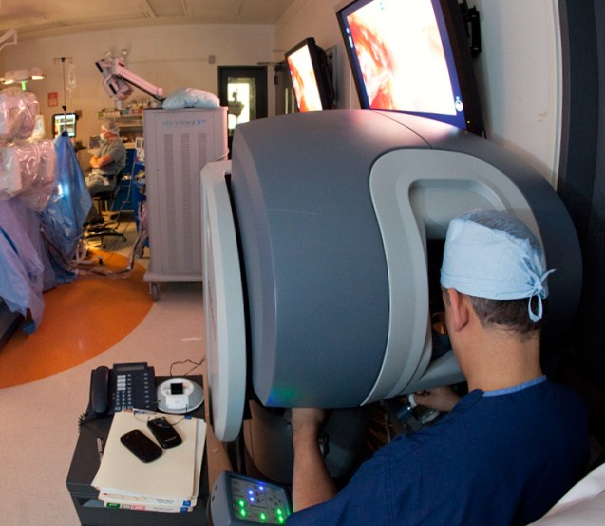Robotic Surgery for Colon Cancer
/Colon cancer is an extremely curable disease. Dr. David Rivadeneira, Chief of Colorectal Surgery at Huntington Hospital, spoke about the tremendous strides in the area of colon cancer treatments.
"If you are diagnosed with Stage 1 or Stage 2 Colon Cancer, the survival rates and chance of living the rest of the your life without cancer are 85-99%," explained Dr. Rivadeneira.
Of course, rates of survival decrease as cancer is in stage 3 or stage 4, but there is still a 60% chance of survival with chemotherapy.
The first line of treatment is still surgical resection - removal of the tumor along with the lymphnodes in the surrounding area. This continues to be the mainstay treatment for colon cancer. Chemotherapy is only given to those patients that have a tumor which has spread to other areas of the body. Surgery is still the gold standard of treatment if the cancer is in the early stages.
The old standard in colon cancer surgery involved a large incision, called a laparotomy. "That way of performing the surgery is being done less and less. The standard now is often minimally invasive options such as laparoscopic or robotic," said Dr. Rivadeneira.
Usually the robotic approach for colon or rectal cancer requires several small incisions. One incision is made around the belly button area and two or three more for the robotic arms that assist during the surgery. With this approach, patients experience a less invasive experience with minimal tissue trauma and bleeding. They're able to visualize the nerves and the tissues much better and it allows access to different areas of the abdomen in the lower pelvic area for people with rectal cancer in particular.
The surgery takes on average from 1.5 hours to 3 hours. Patients who are obese tend to have longer surgery. Patients are in the hospital for about 2 or 3 days. Full recovery takes about 2 weeks.
Similar to prostate cancer, robotic surgery is being used more and more in rectifying colon cancer. The procedure offers patients less recovery period and scarring from the incision. "This is a tremendous improvement. Open surgery would keep the patient in the hospital for 2 weeks and recovery was 8-12 weeks. It makes a huge difference," said Dr. Rivadeneira.

